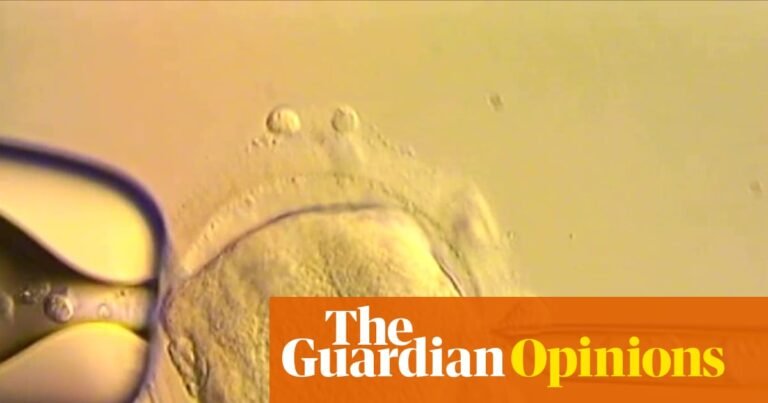Eight babies have been born free of a disease that can lead to terrible suffering and early death, thanks to pioneering scientists in the UK employing a form of genetic engineering that is banned in some countries, including the US and France. Ten years ago, when the government and regulators were considering whether to allow mitochondrial transfer technology, critics warned of “Frankenstein meddling” that would lead to three-parent children. It’s hard now to justify such hostility in the face of the painstaking work carried out by the scientific and medical teams at Newcastle, resulting in these healthy babies and ecstatic families.
Mitochondria, like tiny battery packs, supply energy to every cell of the body. Their DNA is handed down in the egg from mother to child. In rare instances, there are genetic mutations, which means the baby may develop mitochondrial disease. About one in 5,000 people is affected by it, making it one of the most common inherited disorders. As the cell batteries fail in various organs, the child can experience a range of symptoms, from muscle weakness to epilepsy, encephalopathy, blindness, hearing loss and diabetes. In severe cases, they die young.
There is no cure yet, so the aim is prevention. Women who have some damaged and some healthy mitochondria can have IVF and pre-implantation genetic testing (PGT) to select embryos that are clear of mutations or only slightly affected. The options for women with 100% mutated mitochondria used to be limited to donated eggs or adoption – until parliament changed the rules to allow the technology in 2015 and the Newcastle Fertility Centre was granted a licence by the Human Fertilisation and Embryology Authority to use it in 2017.
The process does indeed involve three people. The would-be mother’s egg and a donor egg are both fertilised by the man’s sperm. The nucleus of the donated egg is removed and replaced by the nucleus of the woman’s egg, but its healthy mitochondria remain. This composite egg is inserted into the woman’s uterus. The resulting baby’s DNA will be 99.9% from the parents and only 0.1% from the donor. Hardly a three-parent child.
Yet there are controversies. Some countries will not permit use of the technology because of concerns over human germline genetic modification. The lab-mixed DNA will be passed to future generations, with who knows what consequences. And a question hangs over something called reversal, or reversion. The results of the Newcastle research published in the New England Journal of Medicine show that some of the embryos with healthy donated mitochondria developed mutations somewhere along the line. Mutations formed in 12% of one baby’s mitochondria and 16% in another’s. That was not enough to affect the babies, who were healthy, but previous work by other scientists has suggested that mutations can increase with time, and nobody yet understands why.
The Newcastle scientists and medics have been highly praised for their slow and methodical work. They have brought joy to some families and hope to others. But this is still experimental technology and caution is absolutely valid. And inevitably there are cost issues. People who can afford it will no doubt pay, but the NHS is unlikely to be able to help the rest. Nonetheless, this groundbreaking research must surely be allowed to continue, albeit only in the same careful fashion.
